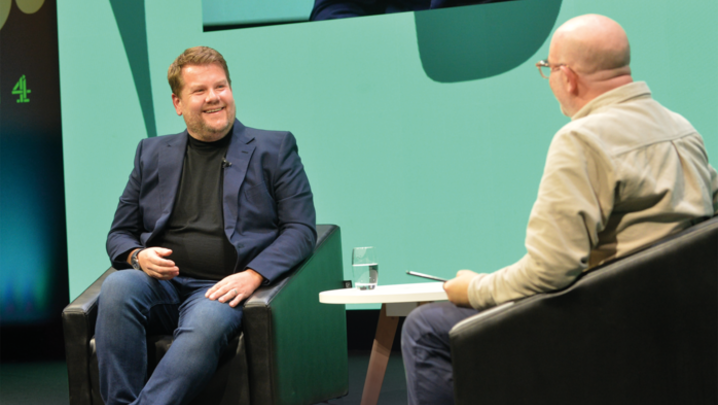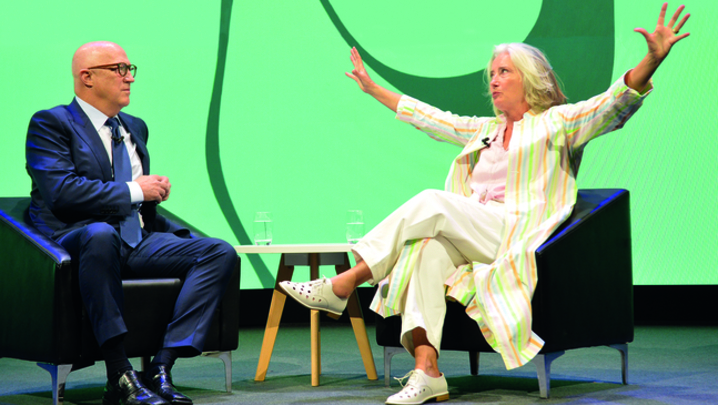Leo Barraclough explains how the pandemic is an opportunity for certain media companies and other investors
"Never waste a crisis,” is the oft-quoted cry in the business press of late, and those with financial muscle are getting ready to pounce on distressed stock. The pandemic has seen the price of many media shares plummet, while borrowing remains cheap, setting the scene for a demonstration of Darwinian economics.
Guy Bisson, research director at Ampere Analysis, says two factors will drive mergers and acquisition activity: “One is the impending economic collapse globally, and the other is simple disruption that was going on anyway around streaming migration.” This will drive companies to “seek scale in a storm and look for bargains” over the next year or two.
In May, the merger between Virgin Media and O2 was announced, a deal that will create a business with revenues of £11bn and 46 million customer accounts. Underlying it are two forces that have been shaping the media landscape for some time: the drive for scale, resulting in consolidation, and convergence between the telecommunications and media sectors.
Such combinations are now commonplace, with AT&T’s support for HBO Max illustrating the benefits of such a marriage. But Sebastien Raybaud, founder of production and finance firm Anton, which has co-financed many bigger-budget TV series, such as His Dark Materials and McMafia, says “the convergence of the pipe and the content is less relevant now… and less of a necessity”. This is because media companies have started to open up direct routes to the end consumer.
As fast as companies attempt to consolidate, the market further fragments. A Deloitte report, published at the start of the year, stated that “consumers can now choose from more than 300 streaming options”.
Since then, even more services have been added, with more to come. “The [coronavirus] shutdowns have accelerated the move to direct-to-consumer digital entertainment,” says Tim Westcott, research director, channels and programming, at Omdia.
In a hyper-competitive market in which “quality is the differentiating aspect”, Raybaud says, producers of premium content hold all the cards. “The power is shifting to the producer because there are a lot of pipes now and, therefore, there is crazy competition between them to capture eyeballs,” he says.
Many of the best producers tend to be “naturally entrepreneurial and fiercely independent”, Raybaud suggests. They are inclined to resist the clutches of larger groups. “As long as these guys have access to talent and IP, given the demand there is for great content, they can thrive, and so they don’t need to be in a big group.”
Acquiring talent-centred production companies doesn’t always work for the buyers, either. A case in point was when Black Mirror creators Charlie Brooker and Annabel Jones left their Endemol Shine-backed production house, House of Tomorrow, and promptly set up a new company, Broke and Bones.
‘The coronavirus emergency has only accelerated structural changes in the media market’
As recession batters the ad-supported TV business, broadcasters will be forced to cut content budgets further; meanwhile, production costs will rise due to coronavirus precautions. “Big companies will probably weather the storm,” says Omdia’s Westcott. “Small production companies – which had to stop production and didn’t get paid, and those trying to sell content that hasn’t been completed – are going to have to take a massive revenue hit.”
Such inclement conditions may prompt some independent production companies to look for safe havens by affiliating with large, vertically integrated groups. “We’ll definitely see quite a lot of consolidation on the production side,” says Enders Analysis founder Claire Enders. “Companies that are vertically integrated will have fundamental competitive advantage.”
Recently, Sony Pictures Television invested in Eleven, the producer of Netflix hit Sex Education, and Sky Studios took a stake in The Lighthouse, which is headed by three former BBC executives.
Large production groups such as ITV Studios, Fremantle, Banijay and All3Media will also be attractive backers for independent producers.
While Raybaud doesn’t see telcos as likely to play a major role in M&A activity, he says broadcasters and pay-TV companies are natural consolidators, as they transition to a multinational SVoD model due to the squeeze on ad revenue and increased cord-cutting.
Silvio Berlusconi’s Italian broadcaster Mediaset has been targeting German broadcaster ProSiebenSat.1 recently, raising its stake in it to 24.2%. Mediaset, which also has media assets in Spain, including broadcaster Telecinco, is seeking to create a pan-European TV giant to fend off competition from the global streamers and web giants. “The coronavirus emergency has only accelerated structural changes in the media market and we are more and more convinced of our project,” Mediaset chief financial officer Marco Giordani told analysts in early May.
Although hit hard by the collapse in advertising revenue, ITV is in a far stronger position than it was after the 2008 crash, thanks to its diversification into production, says Enders. That said, she sees the company as a “prime target” for acquisition and, at “a certain point, there’ll be a mismatch between how the market prices the company [and its true worth]”.
The most likely buyers are the US entertainment conglomerates. Despite being preoccupied with their own difficulties, they have also been raising huge funds in the capital markets – more than $51bn since March. Eventually, they will turn their eyes to international opportunities. “They could buy every single commercial broadcaster in Europe for less than [the price of one of the US majors],” Enders points out.
On either side of the Atlantic, the strength of the dollar has exacerbated the imbalance in valuations. “When the dollar is strong, the Americans come looking,” she notes.
One factor that will drive transatlantic deals is “the inescapable logic that global models are the only ones that are prospering at this time”, says Enders.
In line with this “paradigm shift”, there will be renewed calls for Channel 4 and Viacom’s Channel 5 to merge. The steep drop in ad revenue may make Channel 4 unviable. There would be substantial savings to be derived by combining the back-office functions of the two broadcasters.
Among those that are well placed to swoop on ailing media stock are the Faangs – Facebook, Amazon, Apple, Netflix and YouTube-owner Google – whose stocks have soared this year, and who have content pipes to feed. Producers of premium shows would make a logical addition to their armoury.
Private equity firms, such as Blackstone, Carlyle and KKR, also have the reserves to snap up distressed media shares, with a record $1.5tr in cash ready to deploy, according to data released by Preqin at the beginning of the year.
“They have been waiting for this type of market dislocation,” the head of mergers at a major Wall Street firm told CNBC recently.
KKR has already displayed an appetite for media assets. Last year, it took a 44.9% stake in German media giant Axel Springer, and acquired German producer-distributor TMG, renaming it Leonine, and then buying TV producer W&B TV, which makes Dark for Netflix.
In May, KKR took a 5.2% stake in ProSiebenSat.1, which it used to co-own. “We have decided to reinvest into ProSiebenSat.1 based on our belief that markets are currently undervaluing the company,” a KKR spokesman told Reuters.
A less well-known private equity firm that has also shown an interest in media stock is Silchester International Investors, set up by a group of former Morgan Stanley bankers. In April, Silchester revealed that it held 5% of German media company RTL Group, which owns Fremantle as well as broadcasters RTL in Germany, M6 in France and Antena 3 in Spain.
Among other bargain hunters are the sovereign-wealth funds, such as Saudi Arabia’s Public Investment Fund, which recently bought nearly $500m of shares in Disney.
Even large global groups – such as Sony Pictures, MGM, Starz-owner Lionsgate, and Discovery – will be eyed by the acquisitive. Divestments are also on the cards, with one analyst suggesting ViacomCBS should sell Showtime Networks or Paramount Pictures.
Not even Disney is off the table, with Rosenblatt Securities analyst Bernie McTernan suggesting that Apple could make a play for the entertainment giant, saying, “we believe there could be synergies from combining the two”.
Visibility in the market is low at present, but, as soon as the smoke clears, the hunt will begin.







